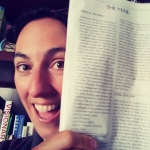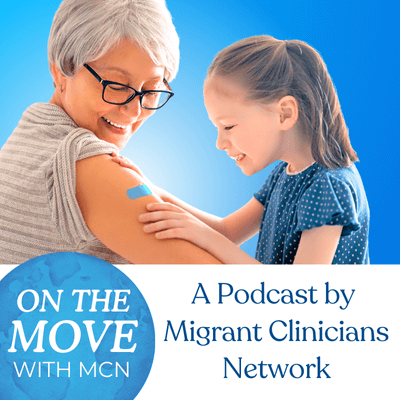In the Field: HOPE Clinic in Houston Rides Out Harvey

A week ago, as Harvey thrust toward its clinics, HOPE Clinic, a Federally Qualified Health Center in Houston, took stock. And then moved that stock. “We transferred our vaccine storage to our emergency location on Friday since we weren’t sure how bad the situation would be, and the risk of losing our stock was huge,” explained Kara Green, MSN, APRN, FNP-BC, a Family Nurse Practitioner and Director of Clinical Services and CQI at HOPE Clinic. That’s just one of many precautions HOPE Clinic took. Others included canceling non-essential appointments, pre-printing all schedules ahead of time, making sure staff contact lists were complete and printed, and canceling the Saturday pediatric clinic and mammogram van visit. They assured laptops and wifi hot spots were distributed and prepared for periods without electricity. Then, Harvey arrived.
On Saturday, and then Sunday, and still on Monday, Houston gasped for air as it was pummelled with what’s being called the worst rainfall disaster in US history. Luckily for HOPE Clinic’s hourly employees, previous planning allowed for two “inclement weather days,” which allowed the clinic to sustain payroll despite the closures -- a measure that Green says was critical for many staff members to be able to financially stay on their feet without work.
Houston was underwater, and, while HOPE Clinic remained closed, its leadership prepared. They developed a skeleton crew comprised of staff closest in proximity to the clinic -- thereby less likely to encounter flooded roads on the way to work -- and opened for three hours on Tuesday. Before they opened, they called the neighborhood pharmacy with which they have a 340B partnership to coordinate open hours. “[Our open hours] wouldn’t be as useful if patients couldn’t go to a pharmacy. Patients could just walk next door,” thanks to the coordination, Green said.
HOPE Clinic welcomed help from the Texas Association of Community Health Centers (TACHC), which provided resources to keep clinicians up to date on pharmaceutical allowances under emergency protocol. HOPE Clinic distributed it to all its clinicians. As the week went on, TACHC also organized a database of open pharmacies searchable by zip code. “Our providers have access to EMR securely at home so we can check to see if the patient was able to access the pharmacy,” Green clarified, a critical piece in the first few days.
Not everything went perfectly smoothly. “Our on-call doctors got hit pretty hard,” Green admits, as patients called in with typical concerns and requests on top of calls for Harvey-related health issues like anxiety and PTSD. But much of the emergency planning allowed HOPE Clinic to reopen quickly and serve needs fairly well by mid-week, Green says, despite parts of the city remaining under water.
Immediately upon reopening on Thursday, “we started screening our patients for exposure to the floodwaters, any physical needs if they were displaced in a shelter, if they lost their medications, any emotional trauma,” Green listed. “We built questions into our EMR and trained the staff” so the screenings would be consistent and thorough. Meanwhile, HOPE Clinic leadership met with other local hospitals and health centers to better organize workforce staffing, disaster supplies, and medication. HOPE Clinic is coordinating an effort to increase tetanus shot availability, including hosting a vaccine clinic this Saturday.
“What’s happened is that people aren’t initially having problems with physical injuries. Maybe their medications got lost or destroyed, or they didn’t bring them to the shelter… But as people start cleaning up their homes, we’re anticipating an increase in more physical injuries related to clean up,” Green said. The clinic is increasing its stock of splints, bandages, and other physical injury supplies.
Even with these remarkable efforts, access to care and especially to medications is still a problem. Green illustrated the point: while she waited in a 45-minute line at the checkout line of the grocery store with a full cart, plenty of people weren’t able to stock up, because they live paycheck to paycheck. Back at the clinic, patients may not be able to pick up the co-pay if their medication they just paid for a few weeks ago got destroyed in the floodwaters.
“I saw a patient who said, ‘I have $2.15 in my bank account,’” Green said. He needed medication -- so she had to get creative.
“We’ve ordered some medications through disaster medication services so patients can actually have in hand sample-type medications from disaster relief.” They’re also working with local pharmacies to better accommodate patients who can’t afford the minimums. Cost isn’t the only concern. Many patients may not be able to think about their medication schedules when their daily lives are so completely disrupted. Chronic diseases held in check in normal times may spin out of control when disaster strikes -- yet another result of the storm about which HOPE clinicians are trying to be more cognizant.
HOPE has begun to assist patients with the social and personal concerns that come with a natural disaster: how to file for FEMA assistance, how to get help if your landlord is evicting you from your underwater apartment, how to defer utility payments. Meanwhile, patients have begun cleanup. While some major highways are still underwater and more rain is expected this coming week, life is starting to resume normalcy. But even among all the devastation, Green is feeling grateful. “I’m really thankful we haven’t had any damage to our clinics. That was really encouraging. So far, we’ve been able to address the patient needs that have come through the doors.” The outpouring of support from not just fellow community members but from people across Texas and around the country isn’t limited to the clinic. On Sunday, Green helped a friend clear out water-damaged debris from her house. “People -- random strangers -- came with water, food, supplies, dropping off storage bins. One person served tacos out of their car! I had strangers helping me remove the debris from the house and taking down the drywall. It’s been pretty amazing.”
HOPE Clinic’s leadership recognizes such a disaster does not end when the rain subsides -- and patients’ needs will continue to shift as time wears on. “Even if we don’t see [patients] this week or next, we’re thinking and planning of the effects in a few months, in six months,” Green said. “We’re taking the marathon approach.”
Like what you see? Amplify our collective voice with a contribution.
Got some good news to share? Send it to us via email, on Facebook, or on Twitter.
Return to the main blog page or sign up for blog updates here.
- Log in to post comments






